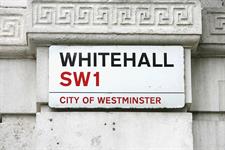The government is making decisions on programme cuts to international aid programmes behind closed doors and without proper scrutiny or consultation, a group of international aid organisations has warned.
The NGO umbrella body Bond, Publish What You Fund, an NGO that campaigns for aid transparency, and Development Initiatives, an international development organisation that aims to put data at the heart of poverty eradication, said they were concerned that the lack of transparency poses a serious threat to the world’s poorest and most vulnerable people.
The government said it was “fully committed to transparency”.
Rishi Sunak, the Chancellor of the Exchequer, announced in November that the UK’s overseas aid budget would be cut in 2021 from 0.7 per cent of gross national income to 0.5 per cent, slicing more than £4bn off the annual spend.
The aid organisations claimed today that little to no information was being made publicly available, despite multiple requests for details of where the aid cuts are landing and how decisions are being made.
They are also concerned that the UK’s commitment to aid transparency has waned since the Foreign & Commonwealth Office and the Department for International Development merged, and parliamentary questions are routinely being evaded.
Hundreds of charities called on the government to reverse its decision to merge the two departments in June last year.
Gary Forster, chief executive of Publish What You Fund, said it was “truly shocking” how little was known about what was happening to aid programmes this year.
A recent Independent Commission for Aid Impact review of UK aid spending during the coronavirus pandemic found government officials were instructed not to provide any information to suppliers from May to August last year about either the prioritisation process or the implications for individual programmes.
The review said: “The existence of a prioritisation process was not a matter of public record until the chair of the International Development Committee, Sarah Champion MP, wrote to the DfID secretary of state on 5 June asking for details.
“The process was confirmed in a 25 June reply.”
Bond, Publish What You Fund and Development Initiatives said organisations had been told that programme decisions had been paused, only then to be told that they were unpaused before having to slow down again, with no information on the delays.
Others have been told to hand back funding they are unable to spend during Covid-19, rather than being allowed to extend or adapt the programme activity, as traditionally was common practice during a humanitarian crisis, the trio of organisations said.
Based on the little data available, the aid organisations allege the majority of cuts seem to be falling on former DfID programmes, while funding to other government departments such as the Home Office, and cross-government funds, including the Prosperity Fund and Conflict, Stability and Security Fund, look set to be maintained.
Abigael Baldoumas, policy and advocacy manager at Bond, said: “Transparency is a precursor to making aid effective, as well as being accountable to the British taxpayer, and to ensure not a penny of public money goes to anything other than helping those who most need it.”
An FCDO spokesperson said Dominic Raab, the foreign secretary, published the government’s priorities for all aid spending in November.
“We are fully committed to transparency, including publishing annual statistics of all aid spending as well as an online database of the government’s development projects.”
On the cut to the aid budget, the spokesperson said: “The seismic impact of the pandemic on the UK economy has forced us to take tough but necessary decisions, including temporarily reducing the overall amount we spend on aid.
“We are running a prioritisation exercise to sharpen our focus on the areas in which we can have the most impact around the world, from tackling climate change to building back better from coronavirus.”
